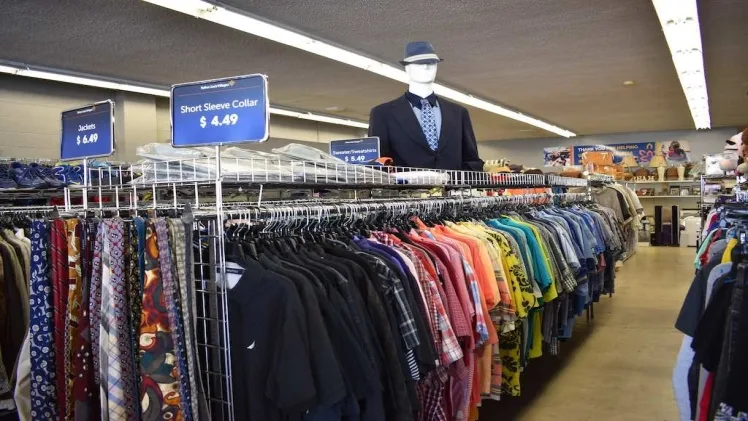Owning a resale shop is more than just a business venture; it’s an opportunity to unearth hidden gems and turn them into profit while contributing to sustainability efforts. Whether you’re passionate about vintage fashion, collectibles, or furniture, resale shops offer a unique space to thrive as an entrepreneur. From sourcing and pricing to marketing and more, you need to know the strategies and practices that can help your resale shop flourish. In addition, you should understand the importance of a modern POS system for a resale shop to streamline operations and enhance the overall shopping experience for your customers.
The Art of Treasure Hunting: Sourcing Second Hand Gems
The success of a resale shop begins with the art of sourcing exceptional second hand treasures. To curate a collection that attracts customers, you’ll need to become a skilled treasure hunter. Attend estate sales, garage sales, thrift stores, and auctions to discover unique items with potential resale value. Develop a keen eye for quality, authenticity, and trends within your niche. Building relationships with individuals looking to sell their belongings can also be a valuable source for acquiring sought-after items.
Pricing for Profit and Value
Effective pricing is a delicate balance between offering value to customers and ensuring profitability for your resale shop. Research the market to gauge the worth of your items and set competitive prices. Consider factors such as the item’s condition, rarity, and brand recognition. Be transparent with customers about an item’s history and condition. Offering fair prices will not only attract buyers but also build trust and loyalty.
Embracing Technology: The Role of a POS System for Resale Shop
In the digital age, a modern POS system for a resale shop is a game-changer. It serves as the central hub for managing various aspects of your business, from inventory and sales to customer engagement. Here’s how a POS system benefits your resale shop:
Efficient Inventory Management: Keep track of your ever-changing inventory with ease. Categorize items, set price points, and receive real-time updates as items are sold or new treasures come in. This streamlines your operations and helps prevent overstocking or understocking.
Seamless Sales Processing: Provide customers with a hassle-free shopping experience at checkout. Modern POS systems accept various payment methods, including credit cards, mobile payments, and cash. Fast and accurate transactions leave a positive impression on customers.
Customer Engagement: Build lasting relationships with your customers by tracking their purchase history and preferences. With the help of a POS system, you can send personalized recommendations, promotions, and updates, keeping customers engaged and informed.
Reporting and Analytics: Gain insights into your shop’s performance through detailed reports. Analyze which items are selling well, identify trends, and make data-driven decisions to optimize your inventory and pricing strategies.
Security: Protect your resale shop’s business and customer data with robust security features. Ensure that sensitive information remains confidential and secure, enhancing trust in your business.
Selecting the right POS system tailored to the specific needs of resale shops is essential. Look for features such as item tracking, integration with e-commerce platforms, and customer relationship management to streamline your operations effectively.
Creating an Inviting Shopping Experience
The ambiance and layout of your resale shop play a significant role in attracting and retaining customers. Arrange your merchandise in an aesthetically pleasing manner, creating an organized and inviting shopping experience. Utilize good lighting, creative displays, and clear signage to guide customers through your store. Make sure that your shop’s layout is easy to navigate, allowing customers to explore your treasures effortlessly.
Marketing Your Resale Shop
Effective marketing is vital to attracting a steady stream of customers to your resale shop. Utilize both online and offline strategies to promote your business. Establish a strong online presence through social media platforms like Instagram and Facebook, where you can showcase your unique finds, share behind-the-scenes stories, and engage with your audience. Consider hosting events, such as vintage fashion shows or collector’s evenings, to draw in local crowds. Embrace email marketing to keep customers informed about promotions, new arrivals, and upcoming sales.
Sustainability and Community Engagement
Resale shops inherently contribute to sustainability by extending the lifespan of items and reducing waste. Emphasize your shop’s eco-friendly approach in your marketing efforts, highlighting the environmental benefits of shopping secondhand. Engage with your local community by participating in neighborhood events and supporting causes that align with your shop’s values. Building a sense of community around your resale shop can foster customer loyalty and goodwill.
Turning Treasures into Triumphs
Owning a resale shop is a journey filled with opportunities to uncover treasures, connect with customers, and contribute to sustainability efforts. By sourcing second hand gems, pricing items for value, embracing modern POS technology, creating an inviting shopping experience, marketing effectively, and championing sustainability, your resale shop can flourish. With dedication and a passion for the art of treasure hunting, you can turn your resale shop into a profitable and rewarding business venture that enriches both your life and the lives of your customers.



